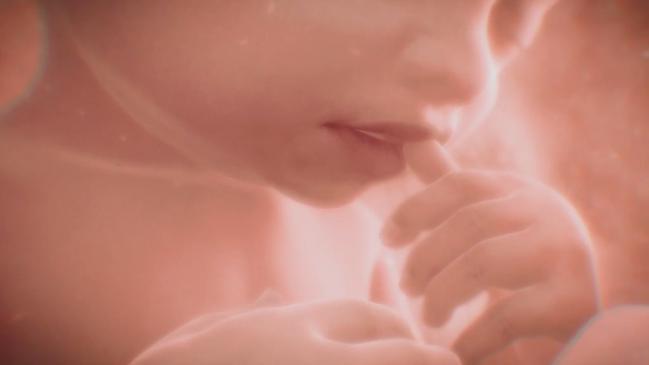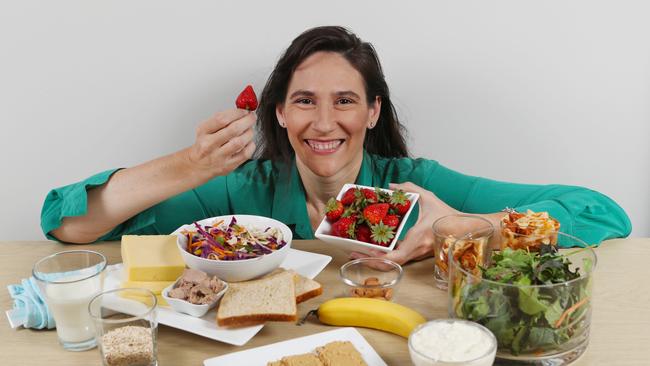Parents’ diets are putting the lives of their unborn children at risk
MUMS and dads are putting the health and long lives of their unborn children at risk through poor diet and lack of exercise, experts warn.

Nutrition
Don't miss out on the headlines from Nutrition. Followed categories will be added to My News.
BABIES born today could have a shorter lifespan than their parents and suffer more disease all because of what goes on in the first 1000 days of their life.
Scientists will this week launch new dietary recommendations to try and prevent the problem.
They say the poor lifestyle and eating habits of parents are to blame for ill health in children and the damage starts even before women conceive a new baby.
Two thirds of parents are overweight and new evidence shows it’s harming not just their own health but affects their children’s genes and causes disease in them as well.
The children of overweight parents are at higher risk of obesity, Type 2 diabetes, kidney disease and cancer.
Some scientists say this means they could live five years less than their parents, others say they might live longer but they will be sicker.

New research from Sydney University this week showed how the parental diet of animals from caterpillars to monkeys affected their offspring’s immunity.
Bad parental diets led to higher markers of inflammation linked to dementia and cancer in their children.
The Early Life Nutrition Coalition, a group of 15 early life nutrition academic and health groups, will this week release new diet recommendations and guidelines that aim to prevent allergies and the diseases that can be influenced by parents’ poor diets.
The catch is, they require mums and dads to change their lifestyle a year before they plan to get pregnant.
New rules are needed because more than one million people have type-2 diabetes, one in nine children have asthma, one in 10 kids have a food allergy and anaphylaxis has increased fivefold in children four years old and under.
“For many of these diseases, it’s not genes, but environmental factors and nutritional intake in the earliest stages of life that are most influential,” said Early Life Nutrition Coalition Chairperson, Professor Peter Davies, Director of the Children’s Nutrition Research Centre, University of Queensland.

“We know that during pregnancy and throughout infancy, there are critical times when a foetus and baby are particularly susceptible to the influence of nutrition — both good and poor nutritional intake.”
The problem starts with the fact that many mums are overweight before they get pregnant and they are putting themselves at risk of a miscarriage, malformed baby and a difficult birth.
Men who lose weight and exercise more before they conceive a child can also improve the development of the embryo.
Dietitian Melanie McGrice says women need to lose weight before they get pregnant and start eating a healthy diet a year before they fall pregnant.
They need to take vitamins like folate and iodine and have a blood test to check for other vitamin deficiencies.
Half of all pregnant mums are putting on too much weight during pregnancy by eating for two when all they need is an extra piece of toast and a few crackers.
“The concept of eating for two is not correct,” says Professor Davies.
In the first three months of the pregnancy zero extra calories are required, in the second trimester only 350 extra calories and in the last three months just 450 extra calories.
A normal weight woman should gain 11.5-16 kilos during pregnancy, a mum who is overweight when she gets pregnant should gain only 7-11.5 kilos.
After the birth babies who gain weight too rapidly are more likely to become obese later in life.
Babies should be breast fed for as long as possible to reduce mum’s weight, and her chance of developing breast or ovarian cancer and reduce the child’s risk of obesity.
Solid foods should be introduced once the baby is aged 17 weeks and it is very important to introduce children to allergy foods early.
Infants who avoid foods like peanuts, gluten, seafood and fish are more likely to develop food allergies later in life.
The big worry is that the group in society experiencing the greatest weight gain are those aged 18-35, the group most likely to be having children, says Sydney University’s Professor Stephen Simpson.
“This is basic information that people should know but they don’t know it,” says Professor Davies.
“The days of producing scientific papers and hoping people will read them are over; we can preach all we like but if we don’t change behaviour we will not make a positive change for the better,” he says.
The Sydney University’s Charles Perkins Centre is about to start a two year study looking at the effect of diet, weight, stress and smoking on the first 1000 days after a baby is conceived.
Neonatologist Dr Adrienne Gordon, Project Leader of the BABY1000 study needs to recruit 500 women who are less than 13 weeks pregnant or are planning a pregnancy and their partners.
For more information contact: cpc.baby1000@sydney.edu.au

